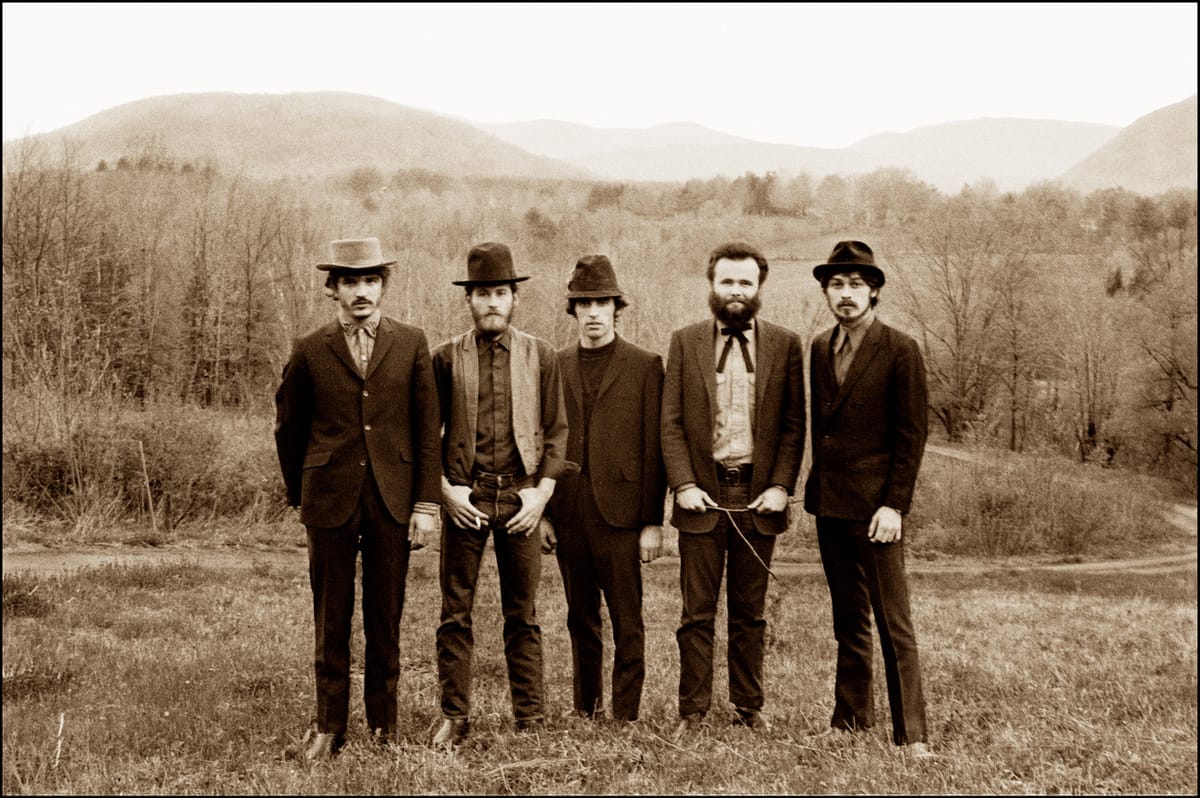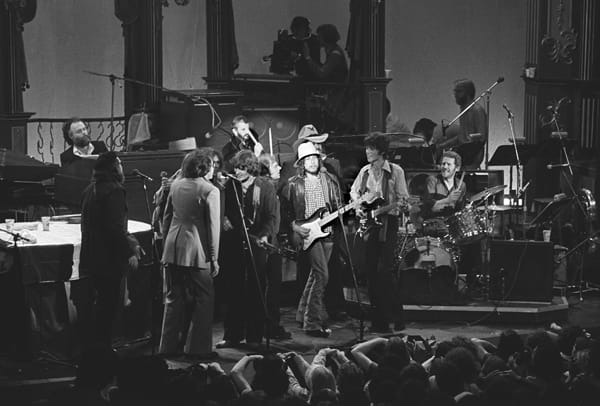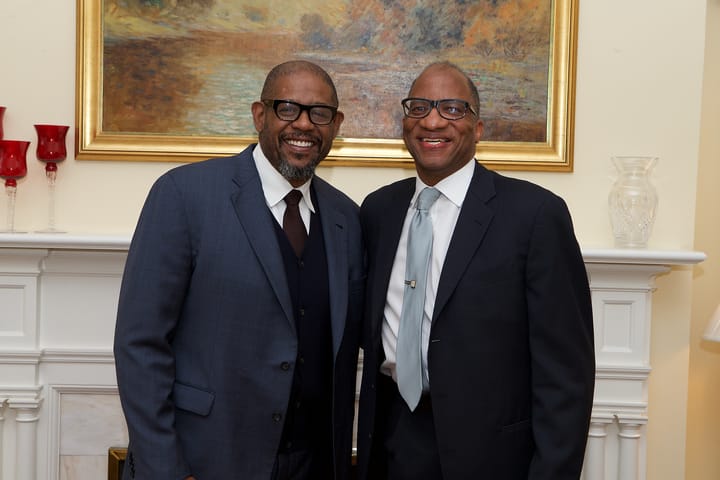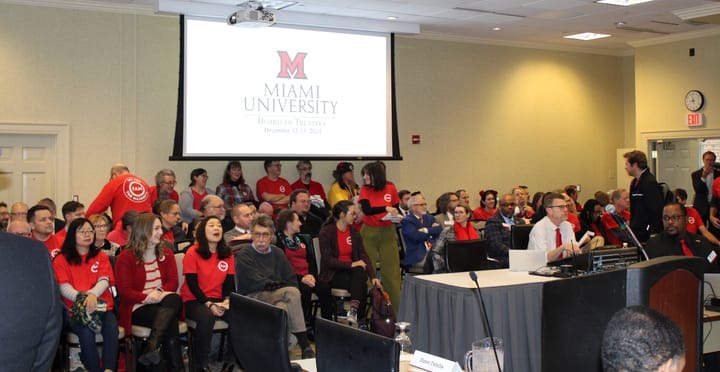The Band that binds: A tribute
With Garth Hudson's death Jan. 21, the world lost the last member of The Band, a group with few top-10 hits but a major impact on the history of music, especially rock and roll.

My first date with Dianna — best friend, wife and frequent editor — was to see The Band. She introduced me to the legendary rock group’s music, and we went to their 1970 concert in Madison, Wisconsin while we were both seniors at Marquette University. More than 50 years later, The Band remains our favorite group, their music always a comfort through strange times.
Garth Hudson, the last surviving member of The Band, died on Jan. 21 at age 87. The group included four Canadians – Hudson, Rick Danko, Richard Manuel and Robbie Robertson — plus Levon Helm, a drummer and mandolin player from Arkansas (my wife once joined a Levon Helm fan club and asked me not to mention this). Before they became The Band, they were the Hawks, first backing Ronnie Hawkins and later Bob Dylan during his transition from acoustic to electric – when they were booed on stage by hardcore folkies for over a year.
By the time of his death, Garth Hudson was known as the greatest organist in rock and roll history. Just listen to his “virtuoso improvisation,” as the New York Times’ Peter Applebome called it, at the beginning of The Band’s “Chest Fever” – which “took off from Bach’s Toccata and Fugue in D minor and veered off in whatever direction, from classical to jazz.” Hudson was a classically trained musician who also played accordion, saxophone, trumpet, French horn and violin. Robertson, The Band’s chief songwriter, once said of Hudson: “He could just as easily have played with John Coltrane or the New York Symphony Orchestra as with us.” He also called him “far and away the most advanced musician in rock and roll.”
Although they only had two top 40 hits, The Band was hugely influential in the late 1960s – even though rock music in general was getting increasingly loud, rebellious and psychedelic. The Band’s sound is hard to pin down. It’s raucous and raw, the lyrics mysterious and magical, secular and sacred, often combining elements of country, R&B, gospel and early rock and roll. One critic called it “country soul … a sound never heard before.” Their music influenced George Harrison, Pink Floyd, Led Zeppelin, Elton John and Bruce Springsteen, among others.
Eric Clapton once said that The Band’s first album, “Music from Big Pink” (named after their house), changed his life. He tried, unsuccessfully, to join them.
The group made the cover of Time Magazine in 1970. Then in 1976, their farewell concert, “The Last Waltz,” was recorded as a film by Martin Scorsese. Rolling Stone once called the documentary “the greatest concert movie of all time.” Robertson went on to do a little acting and to score movies for Scorsese, including “Killers of the Flower Moon,” released shortly after Robertson’s death in 2023 at age 80. The film is dedicated to him.

Levon Helm also did a little acting. When casting for the role of singer Loretta Lynn’s father in “Coal Miner’s Daughter,” the director had trouble finding someone who was “country” enough to play the part. Actor Tommy Lee Jones, who played Lynn’s fictional husband, was a fan of The Band and a friend of Helm’s. He told the director he knew someone. Helm got the part – and some acting lessons from Jones. Loretta Lynn cried when she first met Helm because he looked so much like her father.
Following the Dylan tour in 1966 (which Helm left early, sick of getting booed), the group settled in Woodstock, New York, often playing and writing with Dylan, creating what became later the Grammy-winning “Basement Tapes” album. They also started making their own music and picked up the name The Band (which is what Dylan called them). The four Canadians of the group were greatly impacted as teens by music from the South, blues from Chicago and country from Nashville that leaked into Canada from powerful U.S. radio stations. As American bands joined Civil Rights and anti-war protests in the late 1960s, The Band members were on their own search for America.
The group's early songs were about land and the rural South, the past and the Civil War, traveling carnivals and medicine shows, old-time religion and traditional kinship. Some of their titles captured this spirit: “The Night They Drove Old Dixie Down” (Joan Baez’s big hit in 1971), “King Harvest,” “Rag Mama Rag,” “W.S. Walcott Medicine Show,” “Life is a Carnival,” “Up on Cripple Creek,” and my favorite,“The Weight” (a hit for Aretha Franklin in 1969).
Written by Robertson, “The Weight” has made its mark over decades, covered by hundreds of artists as wide-ranging as Diana Ross and Garth Brooks. The song appeared in the 1969 cult road movie “Easy Rider.” In the 1970s, The Band sang it with the Staple Singers in “The Last Waltz.” In the 1980s, it showed up in the film “The Big Chill.” In the 1990s, it served as the soundtrack for a Diet Coke ad, and as recently as 2023, it was used in a Budweiser Superbowl ad.
The Band’s great achievement was never its fame — that was brief. Richard Manuel, who co-wrote a number of songs with Robertson and Dylan, committed suicide at age 42. Rick Danko died of heart failure at age 56. They both struggled with addiction. Helm, who overcame heroin addiction, won two Grammys in 2007 and 2009 for his albums “Dirt Farmer” and “Electric Dirt.” He died in 2012 from throat cancer. He was 71.
Most of my students over the years had never heard of The Band. But like “The Weight,” the group’s influence endures. The Band created a sound that defined rock and roll’s best qualities, celebrating both our diversity and our common ties.
Back in the early 1970s, the rock critic Greil Marcus summed up why The Band was such a defining presence in rock’s history: “Flowing through their music were spirits of acceptance and desire, rebellion and awe, raw excitement, good sex, open humor, a magic feel for history — a determination to find plurality and drama in an America we had met too often as a monolith.”
Richard Campbell is a professor emeritus and founding chair of the Department of Media, Journalism & Film at Miami University. He is the board secretary for the Oxford Free Press.




